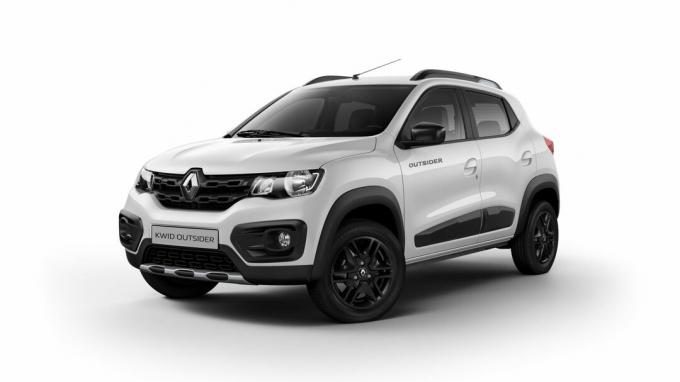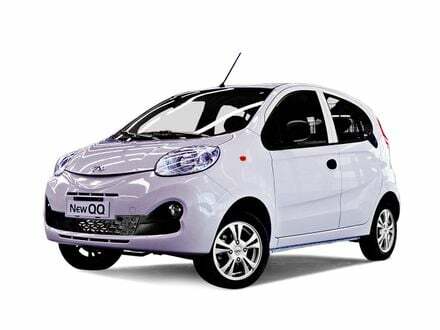Anyone who thinks that the biggest expense you have with a car is at the time of purchase is wrong! The vehicle is subject to certain expenses such as IPVA, safe, licensing, maintenance, fines, tolls and, of course, fuel!
It is recommended to have an average of expenses to at least have an idea of how much money is spent per month, and thus adopt habits that control these expenses.
see more
Desenrola Brasil: Debt renegotiation program covers Fies?…
Beneficiaries born in November and December can now withdraw the…
How to calculate fuel consumption?
For calculate how much you spend on fuel, strictly follow these steps:
- When filling the tank and write down how many kilometers are marked on the odometer;
- Use the car normally;
- When it is necessary to refuel, fill the tank again and write down the new mileage;
- Subtract the last mileage marked by the first to get the number of kilometers traveled in that period;
- Divide the difference obtained by how many liters of fuel were filled, thus obtaining a number referring to the number of kilometers per liter of fuel
For a better view, see the example:
In the first fueled, his car had 2,000 km on it, while in the second it marked 2,500 km. So your full tank yielded 500 km. If you filled your tank with 50 liters, then 500 divided by 50 equals 10 km/L, which is your output.
Alcohol or gasoline?
On average, a liter of alcohol yields 70% of a liter of gasoline. So a super simple calculation can give you a good estimate:
Just multiply the value of gasoline at the gas station by 0.7. If the result is greater than the amount of alcohol, it is worth filling with alcohol. If the result is less than the alcohol value, fill up with gasoline.
See a practical example:
If a liter of gasoline costs R$ 3.50, multiply this value by 0.7. The result is 2.45. In this way, ethanol would be advantageous up to R$ 2.44 per liter. If it's R$ 2.45, it's the same. If it's more than that, it wouldn't make up for it.
It is worth remembering that this calculation is based on an average, and therefore does not take into account the specifics of your car's engine.
If you are interested in more precise numbers, fill up the gas tank and do all the calculations indicated above, and then just fill with alcohol and redo the calculations. Thus, you will get a result of how many kilometers your car runs with each one.
That way, you can divide one result by the other to find a percentage for yield. It is estimated that this result is close to 70%. Look:
A flex-fuel car travels 11 km with 1 L of gasoline, and 7 km with 1 L of ethanol. 7 over 11 equals 0.68, or 68%. Almost 70% isn't it? It is recommended to repeat the habit from time to time to monitor the range and performance of your vehicle.
If you find it interesting, there is the possibility of downloading spreadsheets in Excel (or making your own) to systematize the calculations and better visualize them.
Applications to calculate fuel consumption
Didn't you understand much about that much calculus? Calm! There are apps available for Android and iOS that can help you at this time. This is the case of Consumo, Gasoleta, Fuelio, among others.
Driving habits that increase fuel consumption
There are habits that require a high fuel consumption when taking over the leadership. It's important to be aware of this so that we can avoid as much as possible. Pay attention:
- Stepping deep into the sprint;
- It takes time to change gears, which forces the engine;
- Lack of correction in misaligned axles and out of calibration tires, which overload the car's engine;
- Filling with low quality fuel;
- Soil: rougher asphalts or dirt floors demand more from the engine than smooth asphalts, which reduce friction with the tires;
- The act of stopping and accelerating in city traffic requires more gasoline consumption, while highways without much variation in speed consume less.
Brazil's most economical cars
Before buying a car, if your objective is to save money, it is ideal to choose a car that has good consumption. After all, with fuel prices on the rise and tending to rise even more, who doesn't want to spend less, right?
See below the most economical cars 2019 and how much each one runs per liter.
1 – Volkswagen Up!
City (ethanol) 9.6 km/l
Road (ethanol) 11.1 km/l
City (gasoline) 13.8 km/l
Road (gasoline) 16.1 km/l
2 – Renault Kwid
City (ethanol) 10.3 km/l
Road (ethanol) 10.8 km/l
City (gasoline) 14.9 km/l
Road (gasoline) 15.2 km/l
3 – Fiat Mobi
City (ethanol) 9.6 km/l
Road (ethanol) 13.7 km/l
City (gasoline) 11.3 km/l
Road (gasoline) 16.1 km/l
4 – Ford Ka
City (ethanol) 9.2 km/l
Road (ethanol) 10.8 km/l
City (gasoline) 13.5 km/l
Road (gasoline) 15.7 km/l
5 – Chery New QQ
City (ethanol) 8.9 km/l
Road (ethanol) 9.9 km/l
City (gasoline) 12.9 km/l
Road (gasoline) 14.4 km/l
See too: Banco Honda: Financing without abusive fees and available to everyone

